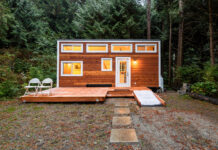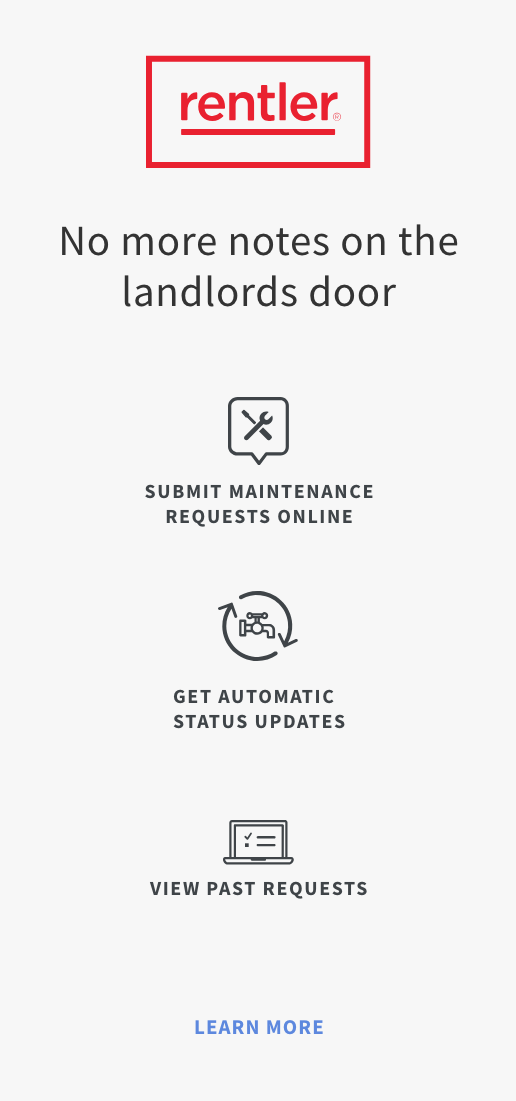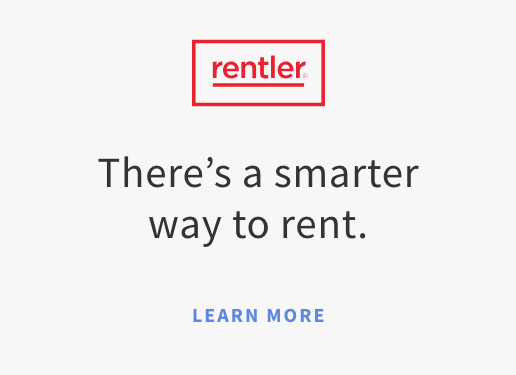Congratulations! Your very first apartment! Are you excited, nervous, or even anxious?
That’s normal; there are tons of things to check and prepare for when renting a property.
We can help you overcome your fears and ensure everything is in order. This guide will walk you through every step of finding your first apartment and renting it without worries.
- Begin with Setting a Budget
Let’s begin with setting a reasonable and accurate budget for what apartment you can afford. Financial issues can quickly become obstacles to renting, so you need to ensure everything is in order before searching so you know what to look for.
Most renters are advised not to go beyond one-third or 30% of their monthly take-home pay. For example, if your monthly income is $6,000, the rent shouldn’t be more than $2,000. But the one-third rule isn’t always realistic.
According to Jarret Austin, Owner of Bankruptcy Canada Inc., “The 30%-rule is outdated, as it doesn’t cater to the needs of a lower or higher earner and doesn’t take into account individual financial situations: debts, loan repayments, retirement savings, and the like.
Calculate your income and usual monthly expenses, create an emergency fund, and try a 50/30/20 budget rule: 50% on essentials (rent, bills, insurance, etc.), 30% on non-essentials (clothes, restaurants, entertainment, etc.), and 20% on savings, emergencies, and extras. And only then you’ll see how much you can spend on renting a first-time apartment.”
Jarret Austin also shared a checklist for first-time rental budgeting and planning for expenses:
- Rental application fee: $25–$100
- Renters insurance: $15–$20
- Moving company: $300–$2,500
- Bills: electricity ($60–$120), Internet ($35–$55), water ($30–$45) gas/heating ($35–$55), and other services (streaming media subscriptions, parking, etc.)
- Pet deposit: $50 –$500
- Security deposit: equal to one month’s rent
- Rent: $1,200–$2,500
Note that the median average rent price for all property types has increased from $1,588 in 2021 to $1,876 as of 2022 in 50 of the US’ biggest cities. For example, the average two-bedroom apartment rent has grown from $1,100 to $1,295 in only one year.
- Thoroughly Research Listings and Beware of Scams
Did you know that nearly 5.2 million people lost money due to rental scams, while 43.1% of renters reported a listing they suspected as fraudulent?
“Some landlords are prone to schemes and machinations with real estate. Especially it concerns storage buildings or garages that they lease to tenants under the guise of apartments,” says Daniel Apke, CEO of Land Investing Online.
“In such cases, these units are not considered as a legal residential space. It’s also worth knowing that in some states, if the leased unit is illegal (the property isn’t legally established and registered with the local authorities), tenancy agreements are unenforceable,” Daniel said.
Check for signs that a listing is a fake before researching the rental property market.
- Book an Apartment Tour
Schedule a few tours a day to save time and find an apartment that fits your needs.
Some landlords offer virtual tours so future tenants can digitally explore apartments before seeing them in-person.
But if you’re a first-time renter, it’s better to start with an in-person tour. Often a virtual one may not be enough to get a feel for the atmosphere. It’s also short on helpful information such as buildings next door, quality of the area, neighbors, etc. If you’re unfamiliar with where the apartment is situated, a virtual tour won’t help.
- Ask Questions
Here’s a rundown of questions first-time apartment renters should ask:
- What is the price, and is it negotiable?
- Are utilities included in the offer?
- Can I pay rent online?
- How long is the lease?
- How is apartment maintenance handled?
- Is the neighborhood crime-free?
- Are the neighbors noisy?
- Do you allow pets?
As for the last question, most landlords typically emphasize it in their listing, when pets are prohibited, but not always. Others may eagerly indicate that they are pet-friendly and welcome tenants with pets.
- Understand the Legal Aspects and Tenant Agreements
Besides searching and asking, you should also know your fundamental tenant’s rights to build a healthy tenant-landlord relationship.
Boost your general law savviness, scroll through the current eviction laws, and learn about apartment leases. A landlord may try persuading you that you don’t need a written agreement, just a verbal one – which is one of the red flags to watch out for.
- Prepare Your Rental Documents
Copy and save this list of required documents you’ll need to rent your first apartment:
- Income documentation (income letter from employer, tax returns, bank statements, etc.)
- Rental application
- Identification documents (ID card, driver’s license, social security card, etc.)
- Service animal vaccination records
- Credit report
“Practically in all cases, landlords would like to run a credit check to be sure you have a positive financial history,” notes Colin Palfrey, CMO of Crediful.
“Normally, they prefer a credit score of 600 and above, but it depends on the landlord. In case of a poor credit score, you should seek other methods to prove your credibility. One of the best ways to do that is to safeguard yourself with a co-signer. This person will take your financial and legal responsibility for apartment payments,” Colin recommends.
You can perform safe and easy credit and background checks, get a copy of the results, and get them to your landlord faster.
- Get Individual Tenant Insurance
“Tenant’s or renter’s insurance is a must-have for those who rent an apartment for the first time,” says Shawn Plummer, CEO of The Annuity Expert.
“An individual tenant’s insurance policy can save you from possible headaches in the future. You should address the key points of property damage and injury liability, in the first place. One of them may refer to your pets, if you have any. Learn about pet liability restrictions: exotic pets, excluded dog breeds, dogs with previous bite incidents, etc. At this rate, you may want to consider pet insurance that offers third-party liability coverage, for example,” Shawn suggests.
Most policies don’t cover pet damage. Read about some other things that tenants’ insurance doesn’t cover and debunk the most widespread myths about insurance for renters to get well-prepared as a first-time renter.
Bonus Tip: Create Your First Apartment Moving In Checklist
Renting a property and preparing to move may turn into a messy nightmare. Especially if it’s your first time, make a checklist and organize your steps in order of importance to avoid getting overwhelmed.
Don’t forget about healthcare and other items on your list before you start your move, like finding a doctor or getting referrals from your previous physicians.
FAQ for First-Time Apartment Renters
When is the best time to rent an apartment?
The best months are between October and February. The most advantageous bargains and the lowest rates are in January and February.
Why? Simple: the holiday season is over, landlords are less busy, and people are less interested in relocating due to inclement weather. And there are no swarms of students looking for housing (they usually do that before the semester starts).
But it’s better to start researching the market and considering some variants one or two months before you plan to move.
How to decide on the proper apartment?
Aside from the tips above, pay greater attention to the location, commute, neighborhood safety, and the following community amenities when renting your first apartment:
- Transportation options
- Parks and green spaces
- Natural (unpaved) or paved trails for walking, hiking, etc.
- Playgrounds
- Parking lots
- Sports facilities (gyms, pools, fitness centers, etc.)
Where can I read more about renting for beginners?
Go to renting 101 or, if you prefer a book, read: Tips for First Time Apartment Renting: How to Find, Move, and Thrive by Amanda Kelly.
Ready to Rent?
Now you’re well-equipped with tips on first-time apartment renting and ready to move!
Use Rentler’s tenant portal and keep everything you need in one place. Save all your favorite listings and scroll through them to pick the best place for your wants and needs. Start now and find your perfect place with Rentler.








